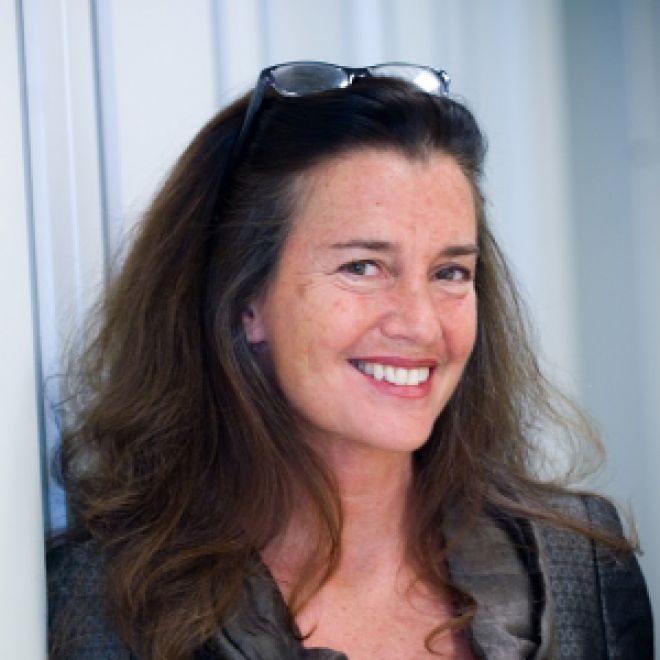
Nadia Rosenthal
ADJUNCT PROFESSOR
- nadia.rosenthal@monash.edu
- +61 (3) 9902 9601
Biography
Born in the United States, Nadia Rosenthal was awarded a PhD in 1981 from Harvard Medical School and trained as a postdoctoral fellow at the National Institutes of Health. After holding academic research posts in Boston at Children’s Hospital and Boston University School of Medicine she moved to the Cardiovascular Research Center at Harvard Medical School, where she directed a biomedical research laboratory at the Massachusetts General Hospital. She co-edited the definitive text Heart Development and served for a decade on the editorial staff at the New England Journal of Medicine, where she was Consultant of Molecular Medicine and editor of the Molecular Medicine series.
Professor Rosenthal’s research at ARMI focuses on the developmental genetics of heart and skeletal muscle, the molecular biology of ageing and the role of growth factors, stem cells and the immune system in tissue regeneration. She is an EMBO member, and recipient of the Ferrari-Soave Prize in Cell Biology and Doctors Honoris Causa from the Universite Pierre et Marie Curie in Paris and University of Amsterdam. She also holds a Chair in Cardiovascular Science at Imperial College London She has served on numerous international grant review committees, advisory panels and has coordinated several major EU consortia on mouse genetics and disease models. She is a Founding Editor of Disease Models and Mechanisms and Editor-in-Chief of Differentiation.
Professor Rosenthal is a member of the Australia and New Zealand Society for Cell and Developmental Biology, for whom she designed the prestigious ANZSCDB Presidents Medal. She has been a faculty member of the Australian Developmental Biology Workshop and is a Visiting Professor at University of Western Australia. She currently holds an NHMRC Australia Fellowship.
Professor Rosenthal spearheaded the election of Australia to EMBL as its first Associate Member, and serves as Scientific Head of EMBL Australia.
Research interests
Prof Rosenthal uses molecular genetic strategies to investigate mechanisms of development, disease, and tissue regeneration. Her team’s research focuses on the role of growth factors, stem cells and the immune system in the resolution of tissue injury for applications to regenerative medicine, and has led to significant advances in novel cell-based therapies for muscle and heart ageing and disease.
Featured Publications
| Authors | Title | Published In |
|---|---|---|
Furtado MB, Costa MW, Pranoto EA, Salimova E, Pinto AR, Lam NT, Park A, Snider P, Chandran A, Harvey RP, Boyd R, Conway SJ, Pearson J, Kaye DM, Rosenthal NA. |
Cardiogenic genes expressed in cardiac fibroblasts contribute to heart development and repair. |
Circ Res. 2014 Apr 25;114(9):1422-34. doi: 10.1161/CIRCRESAHA.114.302530. Epub 2014 Mar 20. |
Macrophages are required for adult salamander limb regeneration |
Proc Natl Acad Sci U S A. 2013 Jun 4;110(23):9415-20. doi: 10.1073/pnas.1300290110. Epub 2013 May 20. |
|
Pinto AR, Chandran A, Rosenthal NA, Godwin JW. |
Isolation and analysis of single cells from the mouse heart |
J Immunol Methods. 2013 Jul 31;393(1-2):74-80. doi: 10.1016/j.jim.2013.03.012. Epub 2013 Apr 9. |
Schofield PN, Bubela T, Weaver T, Portilla L, Brown SD, Hancock JM, Einhorn D, Tocchini-Valentini G, Hrabe de Angelis M, Rosenthal N; CASIMIR Rome Meeting participants. |
Post-publication sharing of data and tools. |
Nature. 2009 Sep 10;461(7261):171-3. doi: 10.1038/461171a. |
Dobrowolny G, Aucello M, Rizzuto E, Beccafico S, Mammucari C, Bonconpagni S, Belia S, Wannenes F, Nicoletti C, Del Prete Z, Rosenthal N, Molinaro M, Protasi F, Fanò G, Sandri M, Musarò A. |
Skeletal muscle is a primary target of SOD1G93A-mediated toxicity. |
Cell Metab. 2008 Nov;8(5):425-36. doi: 10.1016/j.cmet.2008.09.002. |
Klimanskaya I, Rosenthal N, Lanza R. |
Derive and conquer: sourcing and differentiating stem cells for therapeutic applications. |
Nat Rev Drug Discov. 2008 Feb;7(2):131-42. |
Lara-Pezzi E, Winn N, Paul A, McCullagh K, Slominsky E, Santini MP, Mourkioti F, Sarathchandra P, Fukushima S, Suzuki K, Rosenthal N. |
A naturally occurring calcineurin variant inhibits FoxO activity and enhances skeletal muscle regeneration. |
J Cell Biol. 2007 Dec 17;179(6):1205-18. |
Rosenthal N, Brown S. |
The mouse ascending: perspectives for human-disease models. |
Nat Cell Biol. 2007 Sep;9(9):993-9. |
Mourkioti F, Kratsios P, Luedde T, Song Y-H, Delafontaine P, Adami R, Parente V, Bottinelli R Pasparakis M, Rosenthal N. |
Targeted ablation of IKK2 improves skeletal muscle strength, maintains mass and promotes regeneration. |
J Clin Invest. 2006 Nov;116(11):2945-54. |
